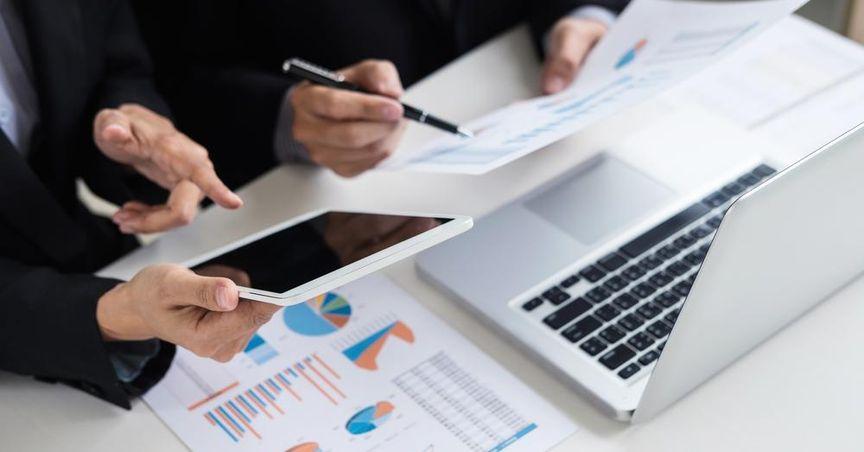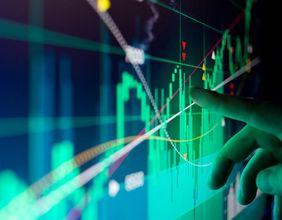Highlights:
- B3, known as the São Paulo Stock Exchange, is the largest financial exchange in Brazil.
- As a major global market, B3 plays a vital role in connecting international and domestic investors.
- B3 has evolved into a diversified platform, offering services across equities, derivatives, and fixed-income markets.
The São Paulo Stock Exchange, commonly referred to as B3 (Brasil, Bolsa, Balcão), stands as one of Latin America's most influential financial institutions. It represents Brazil’s most significant exchange, where investors, companies, and governments engage in financial transactions spanning equities, derivatives, fixed income, and various other instruments. The São Paulo Stock Exchange not only fosters domestic economic growth but also strengthens Brazil's position in the global financial landscape, attracting attention from major international players.
Origins and Evolution of B3
The São Paulo Stock Exchange dates back to 1890, when it was founded as Bolsa de Valores de São Paulo (BOVESPA). Initially, it operated as a traditional floor-based stock exchange. Over time, it adopted electronic trading platforms, driving efficiency and expanding market reach. The significant transformation came in 2008 with the merger of BOVESPA and the Brazilian Mercantile and Futures Exchange (BM&F), creating BM&FBOVESPA. This merger consolidated the equities and derivatives markets, strengthening B3's role in Latin America.
In 2017, the exchange underwent another major transformation, merging with CETIP, a Brazilian over-the-counter clearing house, to form B3 S.A. – Brasil, Bolsa, Balcão. This integration allowed B3 to diversify further, covering a broader range of financial services beyond traditional equity markets. Today, B3 stands as a comprehensive financial infrastructure provider, facilitating everything from securities clearing and settlement to data management.
Structure and Functions
B3 operates several segments, including equity markets, derivatives, fixed income, exchange-traded funds (ETFs), and commodities. The equities segment is the most popular, allowing companies to raise capital through initial public offerings (IPOs) and seasoned offerings, while providing liquidity for investors. Companies listed on B3 are subject to strict corporate governance rules, ensuring transparency and investor protection. Some of Brazil’s largest corporations, such as Petrobras (PETR3/PETR4), Vale (VALE3), and Itaú Unibanco (ITUB4), are listed on B3, offering global investors access to Brazil’s diverse economic sectors.
The derivatives market in B3 plays an essential role in enabling risk management. Investors use derivatives like futures, options, and swaps to hedge against volatility in asset prices, interest rates, and exchange rates. Additionally, B3's fixed-income market allows for trading in government bonds and corporate debt, offering stable investment opportunities.
B3's Role in the Brazilian Economy
As Brazil’s primary financial exchange, B3 is integral to the country's economic development. It enables businesses to access capital markets for growth and expansion, facilitates employment, and contributes to Brazil’s gross domestic product (GDP). The exchange also supports the Brazilian government by providing a platform for issuing government bonds, helping fund public projects and initiatives.
Through its diverse product offerings, B3 has enhanced liquidity and provided opportunities for individual and institutional investors alike. B3’s role extends beyond mere trading; it provides critical financial infrastructure, supporting clearing, settlement, and custodial services, all of which ensure a stable and resilient market environment. This framework not only benefits local market participants but also builds confidence among foreign investors looking to explore opportunities in Brazil.
Global Connections and Influence
B3 has become a key player in international markets, with its regulatory standards aligned with global best practices. Through various programs, including partnerships with international exchanges, B3 has promoted cross-border investments and trading. This international collaboration enhances the visibility of Brazilian assets and fosters foreign capital inflow.
B3’s indices, like the Bovespa Index (Ibovespa), serve as benchmarks for the Brazilian market, guiding investors in assessing performance across sectors. The Ibovespa comprises top-performing companies by liquidity and market capitalization, providing a snapshot of the Brazilian economy's health. B3 also offers specialized indices focused on sustainability, governance, and sector-specific performance, enabling investors to diversify and align their portfolios with specific themes or values.
Technological Advancements and Innovation
In recent years, B3 has leveraged technology to enhance its trading infrastructure. The exchange’s shift to an electronic trading platform increased accessibility and transparency, allowing broader participation. B3 also utilizes blockchain and other fintech solutions, improving security and efficiency in financial transactions. The introduction of high-frequency trading (HFT) and other advanced trading mechanisms at B3 has positioned it as a competitive marketplace, capable of meeting the evolving demands of modern investors.
To adapt to global shifts in the financial landscape, B3 actively participates in sustainability and environmental, social, and governance (ESG) initiatives. Through indices like the Corporate Sustainability Index (ISE), B3 promotes responsible investing and highlights companies committed to ESG principles. This focus on sustainability aligns B3 with international standards, attracting ESG-conscious investors and contributing to the broader objective of sustainable development in Brazil.
B3’s Vision for the Future
Looking ahead, B3 aims to consolidate its position as a leading financial exchange in Latin America. The exchange is exploring new technologies and products, including cryptocurrency-related services, to adapt to shifting market dynamics. B3’s commitment to innovation, coupled with its solid foundation in traditional finance, positions it well to navigate future challenges and opportunities.
B3's development reflects the resilience and adaptability of the Brazilian financial market. As it continues to expand its services and infrastructure, B3 remains central to Brazil's economic progress, serving as a bridge between local and global markets and fostering a stable environment for financial growth.






